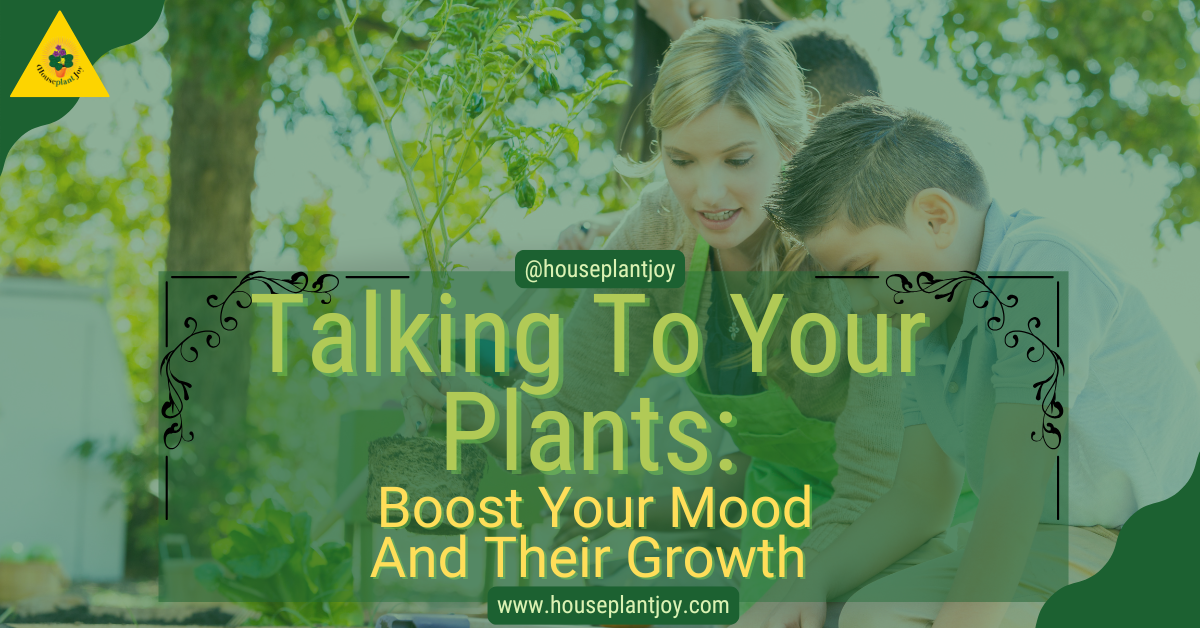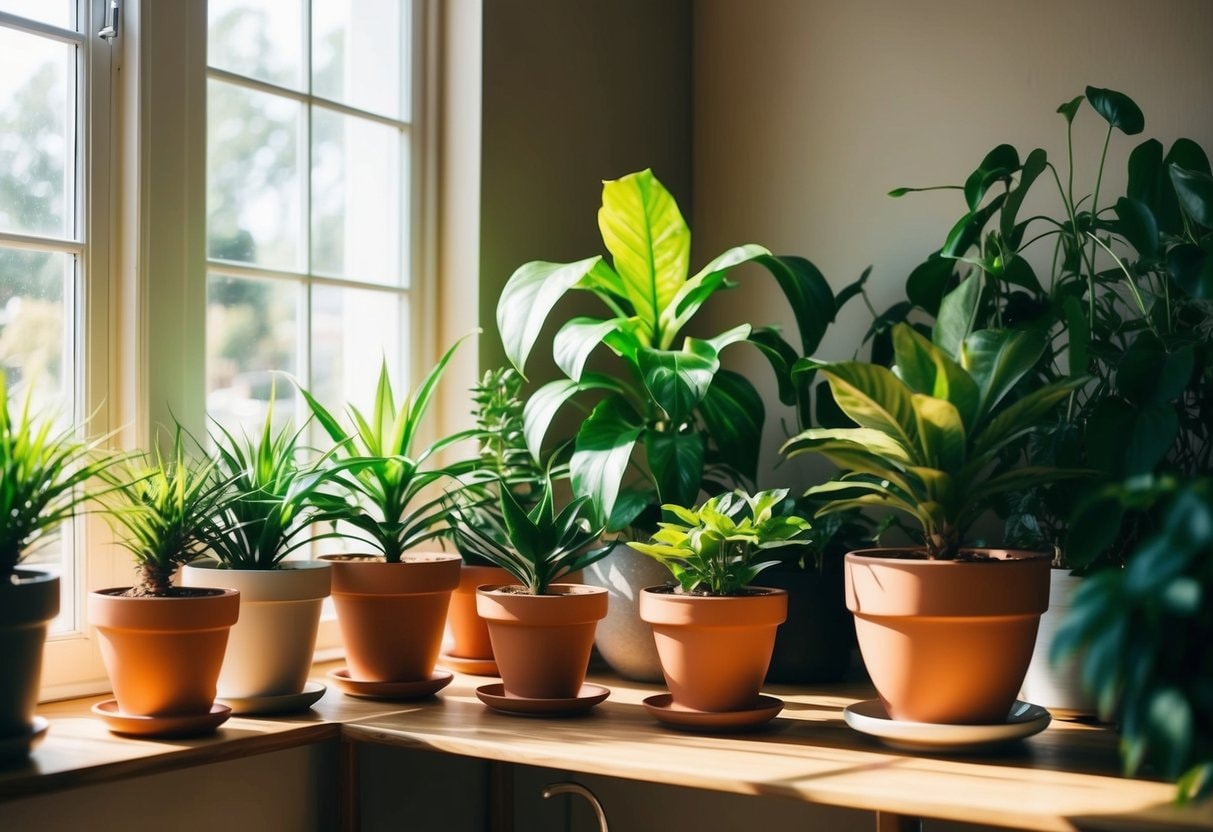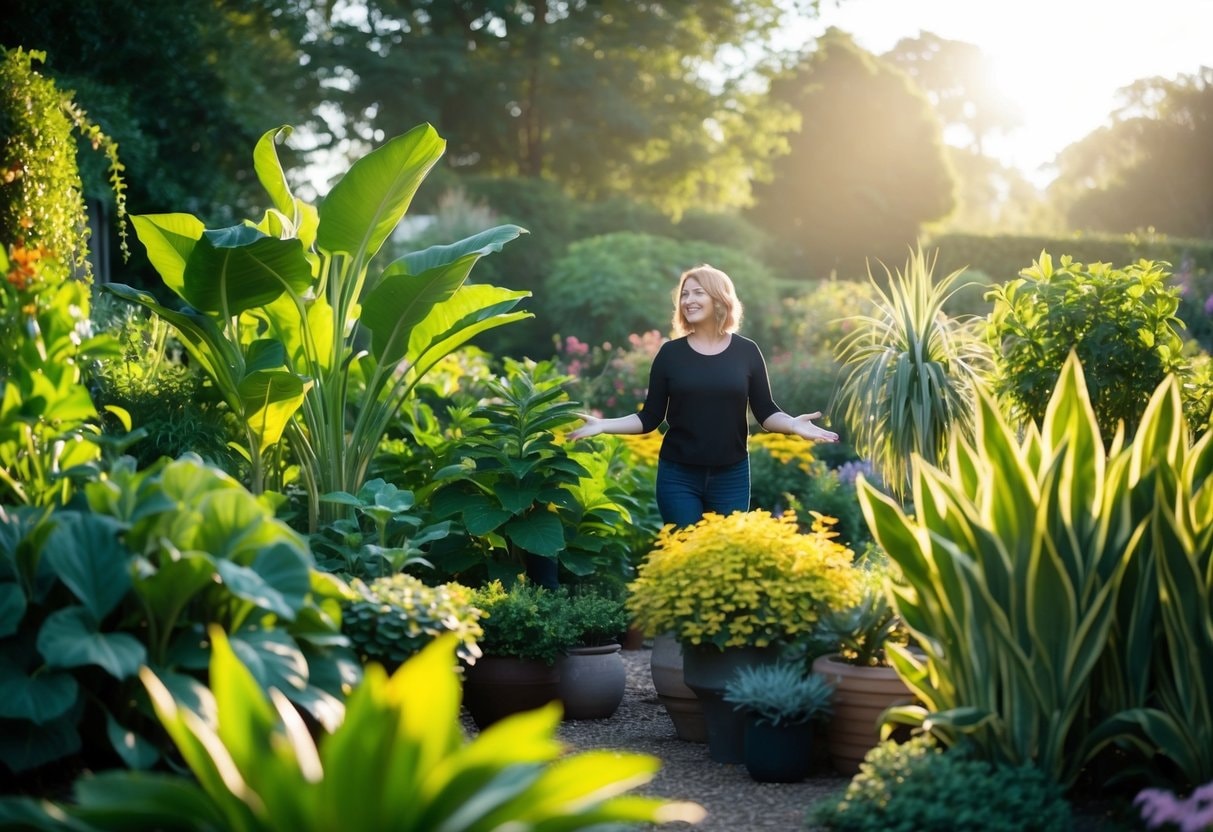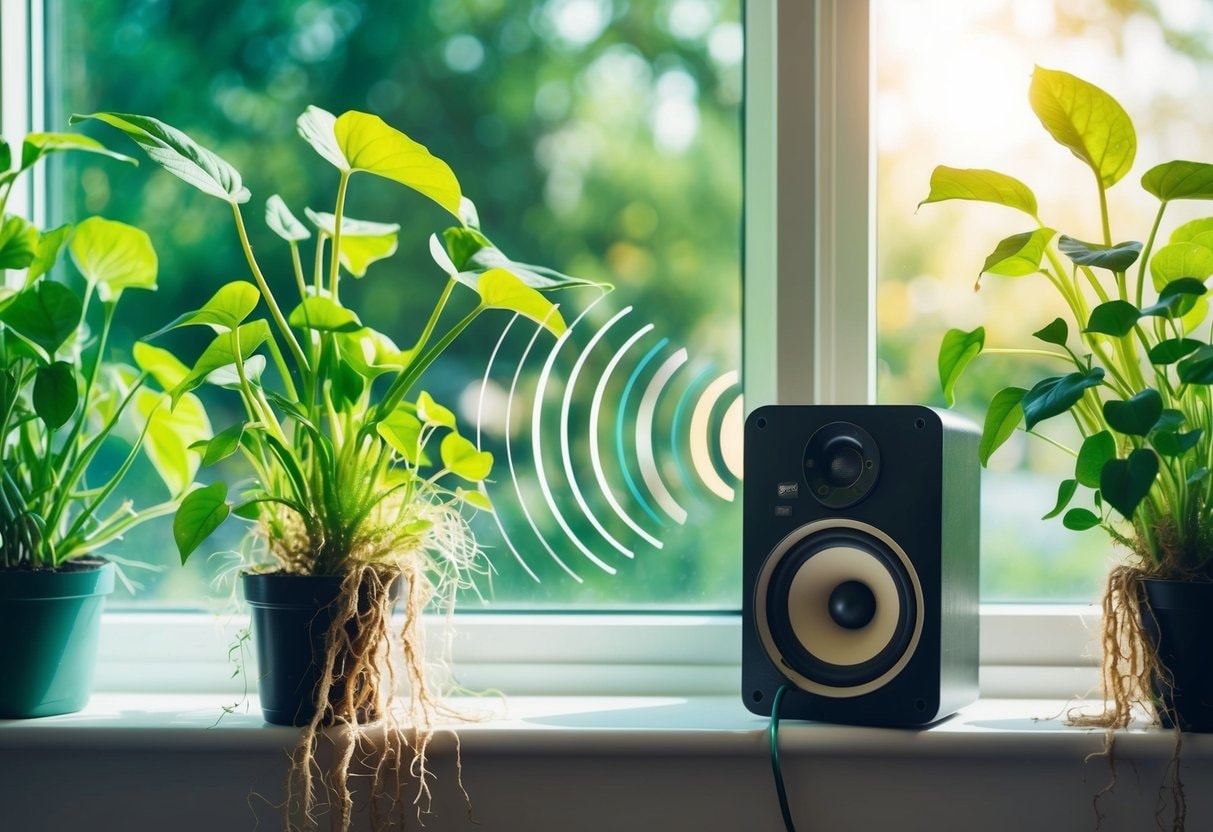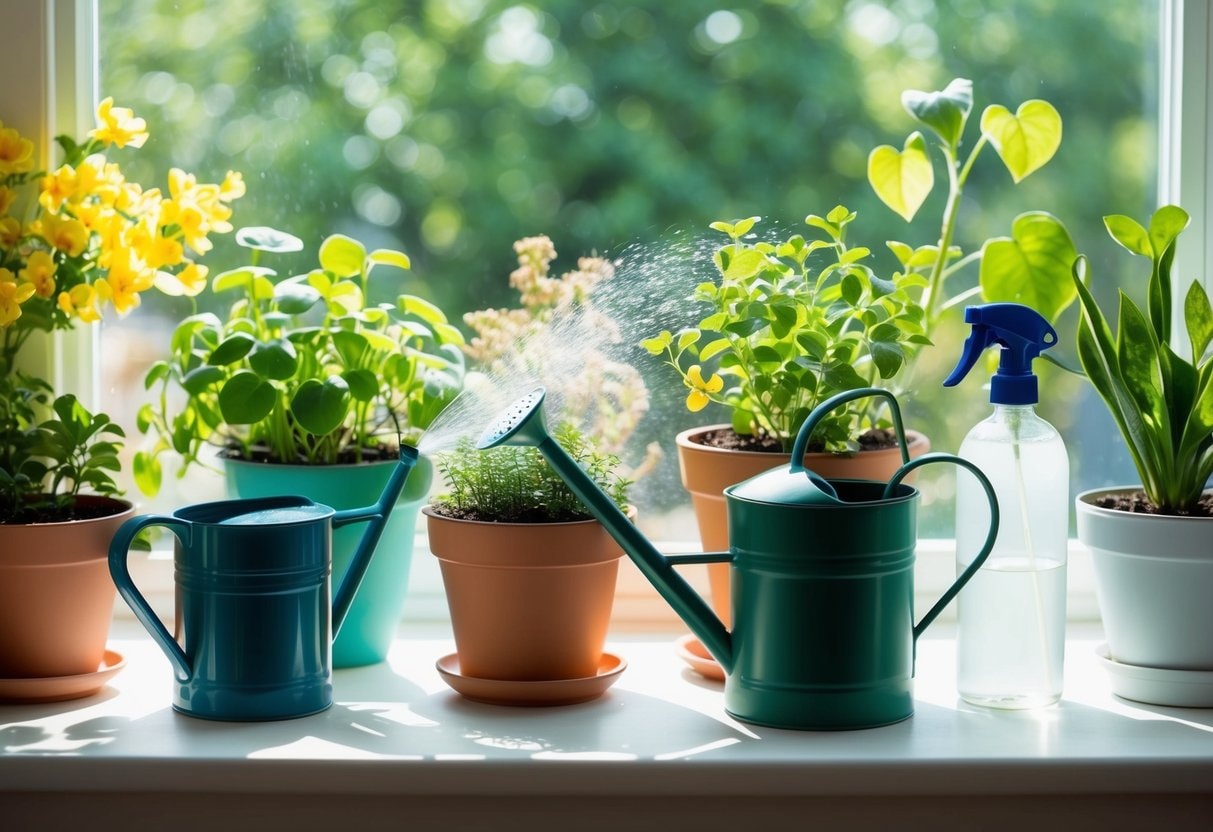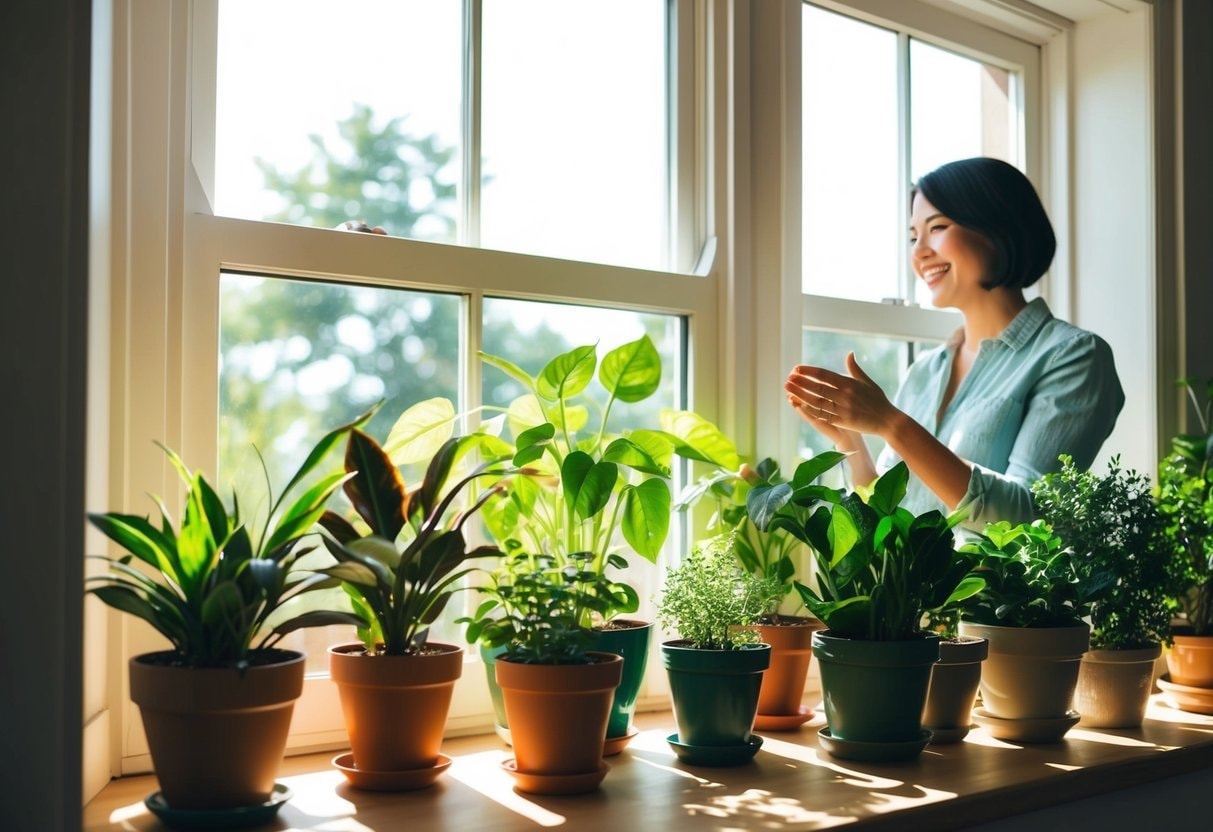HousePlantJoy is supported by our audience. When you purchase through one of our links, we may earn a small affiliate commission. As an Amazon Associate I earn from qualifying purchases. Your cost is not affected.
==================
Imagine walking into your home and being greeted not just by the vibrant greens of your plants but by a sense of joy that washes over you. It might sound whimsical, but talking to your plants can significantly enhance both their growth and your emotional well-being. Engaging in conversations with your plants isn’t just for the eccentric gardener; it’s a simple yet powerful way to foster a connection that nurtures both your indoor oasis and your spirit. Science backs this up, revealing that the vibrations of your voice can stimulate plant growth and improve their overall health, creating a win-win scenario.
As you delve into the fascinating world of plant communication, you’ll discover that this unique bond extends beyond the garden. Talking to your plants can reduce stress, increase happiness, and create a sense of companionship in your home. So, grab your favorite potted friend, take a deep breath, and explore how this delightful practice can transform your space and uplift your mood.
Nurturing Connection: How Talking to Your Plants Enhances Well-Being
Have you ever chatted with your houseplants? It might sound silly, but talking to your green friends can benefit both of you. Plants grow better when you talk to them; talking to plants can help you feel calmer and more connected to nature. Talking to plants can help them grow faster. The sound of your voice creates vibrations that plants can feel. These vibrations help plants take in more nutrients from the soil.
When you talk to your plants, you also pay more attention to them. This means you’re more likely to notice if they need water or care. Chatting with your leafy pals isn’t just good for them – it’s good for you too! Taking care of plants can lower stress and make you feel happier. It’s a fun way to bring a bit of nature into your home and life.
Historical Perspectives
Did you know people have been talking to plants for centuries? Even famous scientists got involved in the action. Charles Darwin studied plant responses to different stimuli, including sound. In the early 1900s, an Indian scientist named Jagadish Chandra Bose experimented on plant reactions.
He thought plants could feel pain and understand affection. Researchers have recently used modern tech to examine how plants react to sound. They’ve found some surprising results!
Plant Communication Basics
You might not hear it, but plants are chatty in their way. They use chemicals to “talk” to each other and warn of danger. Some plants can even make noises! Corn roots make clicking sounds when they grow. Flowers release pollen with a tiny pop.
Plants also react to sounds around them. They can tell the difference between good and bad bugs by buzzing. Some plants even “hear” caterpillars munching and defend themselves!
Sound Vibrations and Growth
Here’s where it gets cool. Sound vibrations can actually affect how plants grow. Low-frequency sounds might help seeds sprout faster. Some studies show that plants with nice music or kind words grow better than plants in silence. But don’t worry – you don’t have to talk for hours. Just a few minutes a day might help.
Why does this work? Sound waves might shake the plant a tiny bit. This could help it absorb nutrients better or make its cells stronger. Remember, plants still need water, light, and good soil to thrive. Talking is just a fun extra that might give them a boost!
The Effects of Music and Speech
Did you know that plants might enjoy music? Some studies suggest that classical music can boost plant growth. Plants seem to respond well to certain sound frequencies. Your words might matter, too.
Positive speech could encourage plant growth, while negative speech might have the opposite effect. Talking To Your Plants is like talking to a friend—kind words can make a difference! Try playing soft music near your plants or speaking to them gently. You might notice changes in their growth or appearance over time.
Understanding Photosynthesis
Photosynthesis is how plants make their food. They use sunlight and carbon dioxide to create energy. It’s like cooking but for plants! Here’s a simple breakdown of photosynthesis:
- Leaves absorb sunlight.
- Carbon dioxide enters through tiny pores.
- Water is taken up from the roots.
- These ingredients combine to make sugar (food) for the plant.
Plants are smart – they can move their leaves to catch more sunlight if needed. This helps them make more food and grow better.
Significance of Touch
Plants can feel when you touch them! They respond to physical contact in various ways. Some plants, like the Venus flytrap, react quickly to touch. Gentle touching can sometimes help plants grow stronger. It’s like exercise for them!
But be careful – too much handling can harm delicate plants. Try this: Lightly brush your plant’s leaves now and then. You might notice it growing more robust over time. Remember, each plant is different, so observe how yours responds to touch.
Did You Know?
Keeping an eye on your plants helps you catch problems early. Regular checks let you see how your green friends are doing and if they need any extra care. Watch how your plants grow over time. Measure their height and width every week or two. Use a ruler or take photos to track progress. Start a plant diary. Write down when you water, fertilize, and repot your plants. Note any changes you see.
Psychological Benefits of Talking to Plants
Chatting with your plants can make you feel happier and calmer. It’s a form of self-care that helps reduce stress. When you talk to plants, you focus on something outside yourself, which can ease anxiety.
Talking to plants creates a positive environment for you and your green companions. It’s a mindful practice that connects you to nature, even indoors. You might find yourself feeling more relaxed after a plant chat session. It’s like a mini therapy session with a very good listener!
Building a Nurturing Environment
Your voice can help your plants grow better. The vibrations from speaking stimulate nutrient movement in the soil. This helps plants absorb what they need more easily. When you talk to your plants, you pay more attention to them. You’re more likely to notice if they need water or care. This extra attention leads to healthier plants. Try these tips to create a nurturing space:
- Speak softly and kindly to your plants.
- Share your day with them.
The Plant Whisperer Phenomenon
The idea of talking to plants isn’t new. In 1848, a German professor wrote about plants having souls. Since then, many have claimed special connections with plants. You don’t need to be an expert to be a plant whisperer. It’s about building a relationship with your green friends. Regular chats can help you understand your plants’ needs better.
Some people play music for their plants. Studies show that sound can affect plant growth. Classical music and nature sounds seem to work best. Remember, being a plant whisperer is more about your care and attention than any magical abilities.
Watering and Nutrient Delivery
Water is vital for your plants. But how much and how often? It depends on the plant type and its environment. Most houseplants like their soil to dry out a bit between waterings. Stick your finger about an inch into the soil. If it’s dry, it’s time to water. If it’s still damp, wait a day or two.
When you water, do it thoroughly. Let water run through the drainage holes. This helps flush out salts that can build up in the soil. Fertilizer gives your plants extra nutrients. Use a balanced, water-soluble fertilizer about once a month during the growing season. Cut back in winter when plants grow slower.
The Role of Soil Quality
Good soil is key to healthy plants. It provides supporting nutrients and helps regulate water. For potted plants, use a high-quality potting mix. These are lighter than garden soil and drain better. They also resist compaction, letting roots breathe.
Add perlite or sand to improve drainage for plants that like drier conditions. For moisture-loving plants, mix in some peat moss or coco coir. Repot your plants every 1-2 years. This refreshes the soil and gives roots more room to grow. Choose a pot 1-2 inches larger in diameter than the current one.
Lighting and Positioning
Light is food for plants. They use it to make energy through photosynthesis. Different plants need different amounts of light. Check the plant’s tag or look it up online for light needs. Place it accordingly in your home. South-facing windows get the most light. East and west windows get medium light.
North windows get low light. If you don’t have enough natural light, consider growing lights. These come in many types and can supplement or replace natural light. Rotate your plants every few weeks. This helps them grow evenly. It also lets you check for any issues like pests or dry soil.
Debunking the Mythbusters
You might have seen the MythBusters experiment about talking to plants. They tried to prove if it helped plants grow. But their test had some problems. The experiment was too short. Plants need more time to show real changes. They didn’t control important factors like soil type and watering.
These can affect plant growth a lot. The sample size was also too small. With only a few plants, the results aren’t very reliable. So, while it was fun to watch, the MythBusters test doesn’t give us a clear answer about talking to plants.
The Limits of Plant Perception
Plants can’t hear like we do. They don’t have ears! But they can sense vibrations and some sounds. Vibrations from talking might help plants absorb nutrients better. The movement can push nutrients from the soil to the roots. Plants also react to certain sound frequencies. But they don’t understand words or emotions in your voice. The real benefit might be for you, not the plant. Talking to plants can help you notice their needs more. You might spot issues like pests or dry soil faster when you pay close attention to your plants.
The Joy of Talking to Your Plants
In conclusion, engaging in the delightful practice of talking to your plants can create a nurturing bond that benefits you and your leafy companions. As we’ve explored, the vibrations of your voice can stimulate plant growth, helping them absorb nutrients more effectively. This connection goes beyond horticulture; it’s a wonderful way to infuse your home with positivity and mindfulness. Each time you share your thoughts or express your care, you’re contributing to a thriving environment for your plants and enhancing your well-being.
So, next time you walk past your green friends, don’t hesitate to share a few kind words. This simple act can lower stress, uplift your mood, and cultivate a deeper appreciation for the beauty of nature in your life. Whether it’s a soft melody or a heartfelt conversation, talking to your plants is an enriching experience that fosters growth and happiness. Embrace this unique interaction, and watch your spirits and plants flourish together.
How Does the Carbon Dioxide From Talking Affect Plant Growth?
Is Any Science Behind the Belief That Speaking Kindly to Plants Can Influence Their Growth?
Can Talking to Plants Have a Positive Impact on Your Well-being?
What Did the Mythbusters Conclude About the Effectiveness of Talking to Plants?
Does Expressing Positive or Negative Emotions to Plants Make a Difference in Their Development?
Why Become a Member of Our Community?
Unlock Exclusive Insights: Gain vital tips that will help your plants flourish and thrive like never before.
Assistance from Professionals: Connect with our knowledgeable team on social media platforms such as Facebook and Twitter. Our gardening experts are eager to support you on your plant journey.
Network with Fellow Plant Lovers: Join other plant aficionados, exchange your stories, and cultivate a nurturing community. Sign up today! Follow Houseplant Joy on Facebook, Instagram, and Twitter for daily motivation and to enhance your plant experience! #HouseplantJoy #GreenThumbsUnite #HouseplantLove

